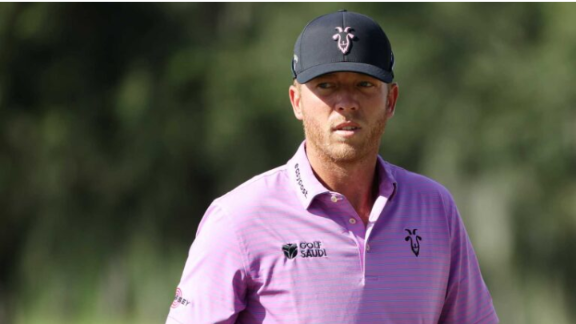Title: The Masters Invitations: A Reflection of Golf’s Evolving Landscape
Last week, the golfing world buzzed as Joaquin Niemann secured a coveted invitation to the Masters, sparking a broader conversation about who did and didn’t receive tickets to Augusta National. While Niemann’s inclusion was met with approval, questions arose about the criteria behind such invitations and the implications for players like Talor Gooch, who, despite a stellar season on the LIV Golf circuit, found himself overlooked.
Gooch, a standout with three victories in LIV Golf’s rigorous lineup of 13 events last season, expressed his disappointment at being sidelined, underscoring the broader dissatisfaction with the system. His sentiments reflect a growing frustration over the Official World Golf Ranking’s refusal to acknowledge LIV Golf events, leaving players like Gooch in limbo regarding their standing in the golfing hierarchy.
In an interview with Australian Golf Digest, Gooch emphasized the importance of having the best players compete at Augusta, highlighting the potential asterisk attached to major victories in the absence of key contenders. His reference to Rory McIlroy’s pursuit of a career Grand Slam underscored the stakes involved, suggesting that the integrity of golf’s most prestigious tournaments hinges on the participation of its top talent.
The specific mention of McIlroy raises questions about whether Gooch’s remarks were prompted by recent events or broader concerns about the state of professional golf. Nevertheless, his comments shed light on the broader implications of selective invitations and their impact on the sport’s narrative.
Despite Gooch’s omission, it’s essential to recognize the stacked lineup that the Masters will boast this year. With established stars like Jon Rahm, Dustin Johnson, and Brooks Koepka already guaranteed entry, the absence of certain LIV Golf players may not be as conspicuous as it seems, especially given the tournament’s limited field.
Gooch’s case underscores the complexities of the evolving golfing landscape, where traditional pathways to major tournaments are being redefined. While his talent is undeniable, his affiliation with LIV Golf complicates matters, raising questions about the future inclusion of players from alternative circuits.
The debate surrounding Gooch’s exclusion also prompts reflection on the need for standardized criteria for invitations, particularly concerning emerging tours like LIV Golf. Suggestions, such as Marc Leishman’s proposal for a top 12 exemption based on season performance, hint at potential solutions that could bridge the gap between established tours and up-and-coming circuits.
In the end, Gooch’s absence from the Masters serves as a microcosm of the broader tensions within professional golf. As the sport navigates its ever-changing landscape, finding a balance between tradition and innovation remains paramount, ensuring that tournaments like the Masters continue to captivate audiences while providing a stage for golf’s brightest talents to shine.
